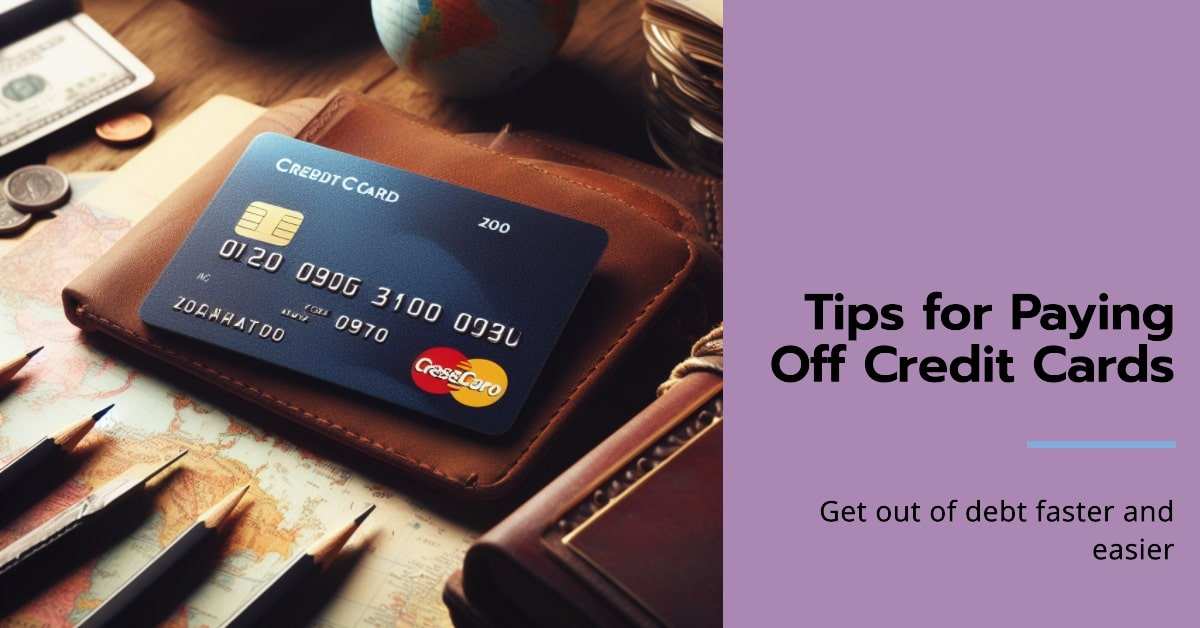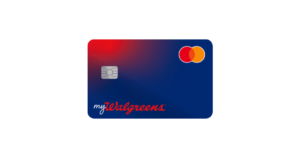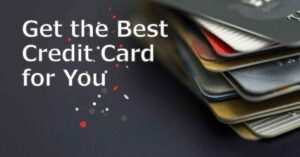
Advice for Paying Off Credit Cards: How to Get Out of Debt Faster and Easier
Credit card debt is a common problem that affects millions of people around the world. According to a report by the World Bank, the global average credit card debt per capita was $2,594 in 2020. Credit card debt can have a negative impact on your financial health, as well as your mental and emotional well-being. It can cause stress, anxiety, depression, and lower your credit score, which can affect your ability to get loans, mortgages, or other financial products in the future.
If you are struggling with credit card debt, you are not alone. There are many ways to get out of debt faster and easier, and improve your financial situation. In this article, we will share some advice for paying off credit cards, such as how to create a budget, prioritize your payments, negotiate with your creditors, and more. By following these tips, you can reduce your debt, save money on interest, and achieve your financial goals.
The best advice for paying off credit cards is to pay more than the minimum amount due every month. This will help you reduce your balance, lower your interest charges, and shorten your repayment period. If you only pay the minimum amount, you will end up paying more interest and taking longer to pay off your debt. For example, if you have a $5,000 credit card debt with an 18% interest rate, and you only pay the minimum amount of $100 per month, it will take you 94 months (almost 8 years) to pay off your debt, and you will pay $4,311 in interest. However, if you pay $200 per month, it will take you 34 months (less than 3 years) to pay off your debt, and you will pay $1,640 in interest.
How to Create a Budget – Advice for Paying Off Credit Cards Debt
One of the first steps to pay off your credit card debt is to create a budget. A budget is a plan that shows how much money you earn, spend, and save each month. It helps you track your income and expenses, and identify areas where you can cut costs and increase your savings. A budget also helps you set realistic and achievable financial goals, such as paying off your debt, saving for emergencies, or investing for the future.
To create a budget, you need to follow these steps:
- List your income sources and amounts. Include your salary, wages, tips, bonuses, commissions, dividends, interest, and any other income you receive regularly.
- List your fixed expenses and amounts. These are the expenses that you have to pay every month, such as rent, mortgage, utilities, insurance, car payments, student loans, and other debt payments.
- List your variable expenses and amounts. These are the expenses that vary from month to month, such as groceries, dining out, entertainment, clothing, transportation, and other personal expenses.
- Subtract your total expenses from your total income. This will give you your net income, which is the amount of money you have left after paying your bills. If your net income is positive, you have a surplus, which means you can save or invest some money. If your net income is negative, you have a deficit, which means you are spending more than you earn, and you need to reduce your expenses or increase your income.
How to Prioritize Your Payments – Advice for Paying Off Credit Cards Debt
Another important step to pay off your credit card debt is to prioritize your payments. This means that you should focus on paying off the credit cards that have the highest interest rates, fees, or balances first, while making the minimum payments on the rest. This will help you save money on interest, reduce your debt faster, and improve your credit score.
There are two popular methods to prioritize your payments: the avalanche method and the snowball method. Here is how they work:
- The avalanche method: This method involves paying off the credit card with the highest interest rate first, while making the minimum payments on the rest. Once you pay off the first card, you move on to the next one with the highest interest rate, and so on, until you pay off all your cards. This method will help you save the most money on interest, and pay off your debt faster.
- The snowball method: This method involves paying off the credit card with the lowest balance first, while making the minimum payments on the rest. Once you pay off the first card, you move on to the next one with the lowest balance, and so on, until you pay off all your cards. This method will help you build momentum and motivation, as you will see your debt decrease quickly.
You can choose the method that suits your personality and preferences. The most important thing is to stick to your plan and pay more than the minimum amount every month.
How to Negotiate with Your Creditors – Advice for Paying Off Credit Cards Debt
Another useful tip to pay off your credit card debt is to negotiate with your creditors. This means that you can contact your credit card company and ask them to lower your interest rate, waive some fees, or extend your repayment period. This can help you reduce your monthly payments, save money on interest, and pay off your debt easier.
However, negotiating with your creditors is not always easy, and it may not work for everyone. You need to have a good reason to ask for a better deal, such as financial hardship, loss of income, medical emergency, or other extenuating circumstances. You also need to have a good payment history, a good credit score, and a realistic proposal. You should be polite, respectful, and honest with your creditor, and explain your situation and your goals. You should also be prepared to provide proof of your income, expenses, and debt, and to accept a counteroffer or a compromise.
If you are successful in negotiating with your creditor, you should get the new terms in writing, and make sure you understand and follow them. You should also keep track of your payments, and monitor your credit report and score for any changes.
How to Use Balance Transfer Cards – Advice for Paying Off Credit Cards Debt
Another option to pay off your credit card debt is to use a balance transfer card. A balance transfer card is a credit card that offers a low or zero interest rate for a limited period of time, usually 6 to 18 months, on the amount of debt that you transfer from another credit card. This can help you save money on interest, and pay off your debt faster.
However, balance transfer cards are not for everyone, and they have some drawbacks and risks. You need to consider the following factors before applying for a balance transfer card:
- Your credit score: You need to have a good or excellent credit score to qualify for a balance transfer card, as they are usually offered to people with high credit ratings. If you have a low or poor credit score, you may not get approved, or you may get a higher interest rate or a lower credit limit.
- The balance transfer fee: Most balance transfer cards charge a fee for transferring your debt, usually 3% to 5% of the amount transferred. This can add up to a significant amount, especially if you transfer a large balance. You need to factor in this fee when calculating your potential savings and payback time.
- The introductory period: The low or zero interest rate on a balance transfer card is only valid for a limited period of time, usually 6 to 18 months. After that, the interest rate will revert to the standard rate, which can be higher than your original rate. You need to pay off your balance before the introductory period ends, or you will end up paying more interest and prolonging your debt.
- The new purchases: Some balance transfer cards do not offer the low or zero interest rate on new purchases, only on the transferred balance. This means that if you use the card for new purchases, you will be charged the standard interest rate, which can be high. You need to avoid using the card for new purchases, or you will increase your debt and negate your savings.
How to Avoid Getting into More Debt – Advice for Paying Off Credit Cards Debt
The last and most important advice for paying off credit cards is to avoid getting into more debt. This means that you should stop using your credit cards for unnecessary or impulse purchases, and only use them for emergencies or essential expenses. You should also avoid applying for new credit cards, loans, or other forms of debt, as they will increase your financial burden and lower your credit score.
Instead, you should focus on building your savings and investing your money wisely. You should aim to have an emergency fund that can cover at least three to six months of your living expenses, in case of unexpected events or crises. You should also set aside some money for your short-term and long-term goals, such as buying a car, a house, or a vacation. You should also look for ways to increase your income, such as getting a raise, a promotion, a side hustle, or a passive income stream.
By following these steps, you can pay off your credit card debt faster and easier, and improve your financial situation. You can also enjoy the benefits of having a debt-free life, such as having more money, more freedom, more peace of mind, and more happiness.
FAQs – Advice for Paying Off Credit Cards Debt
Here are some frequently asked questions and answers about advice for paying off credit cards:
Q: How can I pay off multiple credit cards?
A: You can pay off multiple credit cards by using one of the methods mentioned above, such as the avalanche method or the snowball method. You can also use a debt consolidation loan, which is a loan that combines all your credit card debts into one single payment with a lower interest rate. However, you need to be careful with debt consolidation loans, as they may have hidden fees, penalties, or longer repayment terms. You should always compare the costs and benefits of different options before choosing one.
Q: How can I improve my credit score after paying off my credit cards?
A: You can improve your credit score after paying off your credit cards by maintaining a good payment history, keeping your credit utilization ratio low, checking your credit report for errors, and diversifying your credit mix. You should also avoid applying for new credit cards, loans, or other forms of debt, as they will generate hard inquiries on your credit report, which can lower your score temporarily. You should also monitor your credit score regularly, and take steps to improve it if needed.
Q: How can I avoid getting into credit card debt again?
A: You can avoid getting into credit card debt again by following a budget, living within your means, saving for emergencies and goals, and using your credit cards responsibly. You should also educate yourself on financial literacy, and seek professional help if you have any questions or concerns about your finances. You should also review your spending habits, and identify and avoid any triggers that may cause you to overspend or impulse buy. You should also reward yourself for your achievements, and celebrate your debt-free life.
Q: How can I get help with my credit card debt?
A: You can get help with your credit card debt by seeking professional advice from a certified credit counselor, a financial planner, or a debt relief agency. These experts can help you assess your financial situation, create a realistic budget, negotiate with your creditors, and explore different options to pay off your debt, such as debt management plans, debt settlement, or bankruptcy. However, you should be careful when choosing a service provider, as some may charge high fees, have hidden terms, or be scams. You should always do your research, compare different offers, and check the reviews and ratings of the company before signing any contract. You should also avoid any service that promises to fix your credit score, eliminate your debt, or stop collection calls, as these are usually false or illegal claims.
Conclusion
Paying off credit card debt can be challenging, but it is not impossible. By following the advice for paying off credit cards in this article, you can reduce your debt, save money on interest, and improve your financial situation. You can also enjoy the benefits of having a debt-free life, such as having more money, more freedom, more peace of mind, and more happiness. Remember that you are not alone, and that there are many resources and services available to help you with your credit card debt. The most important thing is to take action, and start your journey to financial freedom today.
Advice for Paying Off Credit Cards Debt: How to Get Out of Debt Faster and Easier - Post Disclaimer
The information on Advice for Paying Off Credit Cards Debt: How to Get Out of Debt Faster and Easier is for general purposes only. While we strive for accuracy, we make no guarantees about the completeness or reliability of the information. We may receive compensation for reviews, but this does not influence our opinions. Always check with the credit card provider for the most current terms and conditions.
By using [Advice for Paying Off Credit Cards Debt: How to Get Out of Debt Faster and Easier] information, you agree that [CardAdviceHub] will not be liable for any losses or damages arising from your use of the information provided.






